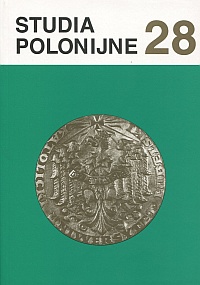May the Song Be Honoured! – from the History of Polish Choirs in London after the Second World War
Main Article Content
Abstract
Having lost its independence in the eighteenth century, Poland sought to preserve its national identity by cherishing Polish history and culture, among other things, through teaching and popularising songs in the mother tongue. They reflected the history of the Polish nation, bore patriotic values, and expressed religious feelings. When after a short period of Poland's independence it again fought with the invader, the song accompanying soldiers and civilians in the fronts of the Second World War helped them manifest their longing for the country and hope for independence. In military camps and schools amateur choirs were established, and some of them, like the Choir of the Polish Army formed in Scotland in 1940, have earned their place in the history of Polish choirs abroad.
In view of the political situation in the country after war activities had ended the Polish emigration in the British Isles was forced to organise national social and cultural life anew. The ideas of independence were carried out by, among other things, Polish choirs. Since 1955 they had been associated in the Alliance of Polish Choirs in Great Britain.
Aside to the activity of the Choir of the Polish Army (from 1949 on the Frederick Chopin Choir) new choirs were established: the Karol Szymanowski Academic Choir, the Abp Jan Cieplak Choir, the Feliks Nowowiejski Choir, St. Andrzej Bobola's Church Choir, the Tadeusz Kościuszko Choir of the School of Homeland Subjects, the Male Carol Singers Choir, the Choir of the School of Younger Volunteers, the Laudes Choir and others. The willingness to collaborate on a closer basis resulted in the establishment of the Association of Polish Choirs in London in 1976. Thus united choirs organised, among other things, concerts of carols and jubilee concerts, took part in meetings with John Paul II in 1982 at Crystal Palace.
Each choir retained its specific character composed of the following: its milieu, artistic level, repertoire, and musical preferences of the director. The choirs participated in religious and patriotic events, organised games and charitable lotteries, supported charitable actions, organised common trips and integrative meetings. The repertoire of the choirs and artistic activity of eminent animators of choir life abroad call for a detailed analysis (e.g. J. Kołaczkowski, Z. Gedel, and H. Hosowicz).
The traditions of performance in Polish choirs in London had been worked out for years. They were not always continued in further and renewed compositions. The majority of the post-war choirs ended their activity in the 1990s. Polish vocal and vocal-instrumental groups (both religious and lay) that are established at the moment in London model their style of performance and repertoire, above all, on the musical life in Poland.

